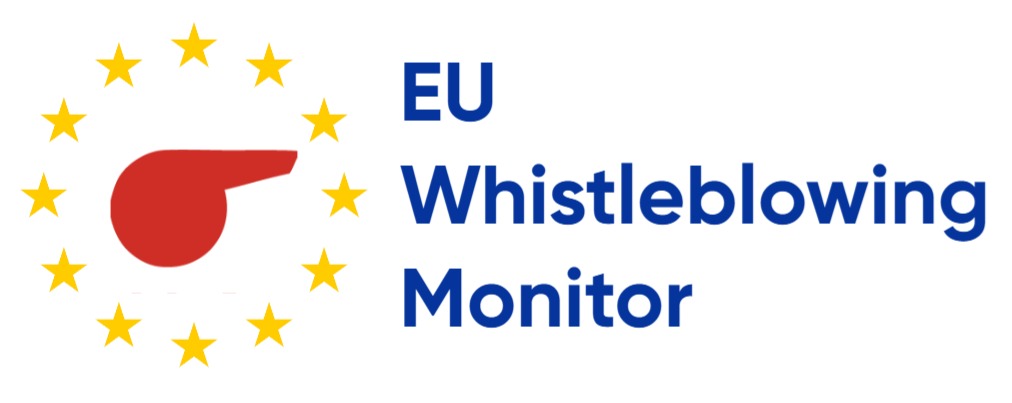Written by Ida Nowers, EU Whistleblowing Monitor Law and Advocacy Manager
Introduction
Just a few weeks after the final EU country adopted a new whistleblowing law to transpose the EU Directive on Whistleblowing, the European Commission has issued its report on its implementation and application.
The eleven-page report, published on 3 July 2024, reviews the transposition efforts of 24 of the 27 Member States and highlights several areas where many of the new laws do not meet the Directive’s requirements, the purpose of which was to harmonise a minimum standard of protection across the Union.
The Directive required Member States to implement provisions including mandatory confidential reporting channels in organisations and competent authorities, provision of full compensation for retaliation and access to advice and support, as well as effective dissuasive penalties. It has been described as ‘groundbreaking’ in moving forward evolving standards for whistleblower protection laws.
However, the approach of Member States to the transposition has been described as delayed, confused, and minimal. The 27 countries had two years until 21 December 2021 to transpose the new requirements; however, only three completed efforts to transpose on or before this date. Several countries were referred to the European Court of Justice for severe delays, and significant fines have already been ordered.
Read: Judgement of the CJEU in the case of EU Com v Poland
Worryingly, recent analysis from civil society found that many of the transposition laws do not meet the requirements of the Directive or international best practice principles.
Read more: How well do EU countries Protect Whistleblowers: Assessing the transposition of the EU Whistleblower Protection Directive (Report – Transparency International) and Beyond Paper Rights: Implementing Whistleblower Protections in Central and Eastern Europe (Report – CEELI)
Further, there are now several initiatives by civil society organizations attempting to formally raise concerns for non-compliance of respective laws through letters to the Commission and infringement complaints.
Read More: Complaint to the European Commission against Germany (Whistleblower-Netzwerk e.V) and Blowing the whistle to protect whistleblowers in Europe (Blog – Transparency International)
Summary of report findings
The report, which concludes an assessment of the national measures, confirms these concerns, highlighting several instances where member states’ transposition does not comply with the requirements of the Directive. For example, some member states have:
- Restrictively implemented the material scope (types of wrongdoing that can be reported) to exclude certain breaches or narrowly interpreted key standards such as ‘reasonable suspicions.’
- Restrictively transposed the personal scope, which should protect a wide range of individuals, to omit categories such as volunteers, contractors, or suppliers.
- Incorrectly included consideration of the whistleblowers’ motives for reporting as a condition for protection.
- Imposed conditions that limit the freedom to report directly to external authorities or make public disclosures under specific circumstances not included in the Directive.
- Incorrectly allowed larger employer entities to bypass the requirement to establish internal reporting channels by allowing for group-level arrangements or imposed limitations on external reporting such as excluding reports committed more than two years prior to reporting.
- Improperly transposed the duty of confidentiality, omitting key safeguards to protect the whistleblower’s identity.
- Omitted to prohibit any form of retaliation.
- Not guaranteed access to independent information, advice, and legal aid by not providing for individual advice or effective assistance.
- Inadequately transposed remedial measures (such as the reversed burden of proof and interim relief measures) leading to legal uncertainty.
Conclusion
This new report highlights various discrepancies and incomplete transpositions among Member States, underscoring the need for ongoing efforts to achieve full and consistent implementation. Presumably, the European Commission will continue to monitor the implementation of the Directive, taking steps to ensure that all Member States fully comply with its provisions. Infringement proceedings will continue or begin where necessary. The Commission already seems ready to impose financial sanctions to incentivize timely and accurate transposition.
The EU Whistleblowing Monitor – and its team of voluntary country editors – will continue to track developments in the implementation of the Directive, providing a source of information and resources for the public, policymakers, and advocates to continue to hold EU governments accountable for the proper protection of whistleblowers. This ensures they can speak up to stop harm and protect the public interest for all.
Visit today: EU Whistleblowing Monitor
